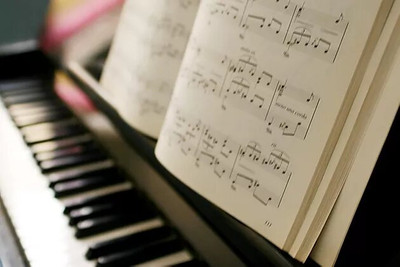Science Says Piano Players' Brains Are Very Different From Everybody Else's
Lisa Darmanie, Founder/Director Alabanza Music on 27th Jan 2018
Whether it's the Keyboard or the Piano, Science says the Keyboardist's/Pianist's Brain is different!
The piano is a beautiful instrument. Its players often come across as mysterious; these people who have spent hundreds of hours practicing scales and repeating phrases over and over again to reach sheer aural perfection. To an audience member it can have a similar effect to watching a magic trick or a ballet: it is so skilled and beautiful it almost seems impossible, a feat of the Gods.
But what is going on underneath all of this hard work and magic? It certainly isn’t luck that such an effect can be made.
The little bolts of electricity running through their neurons as they play are not connected the same way as concert goers’. Piano players brains even work differently than the way musicians’ are wired. And this is all because of the instrument they are playing. The piano makes them and their brains unique.
So, read on, and don’t say I didn’t warn you (especially if you have a big-headed pianist in the family!)…that pianists’ brains are different than everyone else’s. Here’s how:

Piano players are more balanced
This stands to reason. Pianists are born (like all of us) with one side of the brain being favored more than the other. This is not unusual; everyone has a natural preference for which hand we prefer holding our pen in or eating our cereal with (from a young age). The difference here is that pianists begin practicing using both parts of the brain when mastering the use of each hand whilst playing.
If one hand were to be weaker than the other, playing the piano would not work. Without skill in both it can end up sounding clunky and unbalanced, at best. This necessity to practice and to master both hands means that the brain effectively evens itself out. With practice, despite each player having a naturally stronger hand when they begin, by the time they have become an expert, the weaker hand is strengthened to the same degree as the stronger one.
Piano players are more logical multitaskers
A piano player also more easily creates a link between their frontal lobes. But what does this mean? Basically, this handy part of the brain contains control of emotional responses, social behaviors and even impulses, so it’s handy if you have easier access to it than most. This also means that pianists are likely to have stronger problem solving and multi-tasking skills and be able to tap into their creativity with greater ease, too.

Piano players are more free to express their authentic selves
One study by Dr. Ana Pinho found that when playing, the well practiced players would turn off the part of the brain that offers stereotypical brain responses. This allows them to play the true expression of who they are and what they want to ‘say’ with their music, rather than some copycat phrasing. (This could be a very useful skill if transferred to life and everyday situations, where the advice of ‘just be yourself’ might work with these dexterously fingered individuals.)
Piano players are able to use their brain’s energy more effectively
Less energy is used in the motor skills section of the brain. It seems once you have mastered your craft, your brain simply needs less blood and oxygen sent to this section, thus freeing up energy for other parts of playing, like phrasing and emotional connection to the song.
Piano players are well practised at conversing (though not in a language we are used to using everyday)
In the study by Dr. Charles Limb, when pianists improvise, it was found that the parts of the brain containing the language center lit up unexpectedly. Despite being a motor skill, when riffing in a call and response style, players are actually talking to each other!
So, that’s it! Basically, pianists are awesome! And I would encourage anyone to try out just five minutes a day of playing if you ever have a piano or keyboard near you. Who knows, you might become the next Rachmaninov, or even Chopin. Or you might simply remember where you put your car keys.




